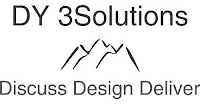I had been involved in a piece of Team Development that
related to forming partnerships new stakeholders. It still feels relevant because
whereas the context changes, the themes remain
reasonably consistent:
“How do we influence new and existing stakeholders to help them to grow and develop into the changes we are advocating?”
J.K. Rowling seemed to have come across the perfect solution
in her “Harry Potter” series: Hogwarts had at its disposal a sorting hat. It put
the right people in the right “house:” put the hat on, it spoke, and you were
allocated, then on to the next person and so on….
Unfortunately, no such thing exists in our world of getting things done and we are often left to ourselves to try to establish who the supporters of change both internal and external might be.
It was this way for the team I’d been engaged to work with. I introduced them to the following quadrant with a view to helping them to understand how we
might engage with and develop people as we work with them. It’s a journey and,
like all journeys, it works better if know where you’ve started from. Admittedly,
knowing where you’re going helps too, but that’s for another time!
I’ve applied this in several contests since then and the feedback has been positive:
· It has helped clarify role and purpose.
· It has given a deeper and more productive meaning to networks.
· It has helped to establish clarity.
· It has informed our actions.
· It has helped us to achieve “good outputs.”
Of course, the model is pretty sterile without conversations, ones that perhaps ask the following related to each quadrant:
Bottom Right
- What is expected of them by:
- Change agents?
- Their existing team/organisation?
- What are the boundaries and limitations of their inputs/decision making?
Bottom Left
- What do we expect of them, what can we contribute?
- Change agents?
- Their existing team/organisation?
- What are the boundaries and limitations of their inputs/decision making?
- What actions can we take to develop them, increasing their contribution to:
- Their team(s)/organisation.
- The project/intervention.
- Their professional development.
- Their personal development.
- Their capacity to inform other decision makers.
Top Left
Clarity rules here!
- How can we support and develop them within and throughout the process?
- What values, attitudes, behaviours and beliefs do they bring to the process?
- What values, attitudes, behaviours and beliefs might we develop and grow to enable them within the process?
- Where are the areas of potential growth through reciprocity?
Top Right
How might we develop their interest, engagement and commitment/support?:
- What are the strong messages?
- What benefits might grow for the organisation?
- Reputational
- Developmental
- Cultural
- Environmental
- Financial
The shifting and flexible role of the Coach, Mentor,
Facilitator has much to offer here in underpinning the meaning we attach to the
specific development, the people involved and our engagement on processes that
create high value outputs for those involved.














